


If you ever find yourself in Sumatra,Medan is a city that grabs you with its lively,bustling energy and warm-hearted people. Walking through its streets,you’re immediately wrapped in a tapestry of sounds—the chatter of street vendors,the hum of motorbikes weaving through traffic,and the occasional call to prayer blending into the background. The air carries a mix of aromas:fragrant spices from the markets,the sweet scent of freshly fried pisang goreng,and the rich,earthy smell of kopi Medan brewing in tiny warungs. It’s a sensory feast that feels both familiar and excitingly new. Medan’s character is a beautiful blend of cultures—Malay,Batak,Chinese,and Indian influences swirl together in the food,architecture,and daily life. You can wander through the grand old colonial buildings,then find yourself savoring a bowl of soto Medan,a creamy,coconut milk-based soup bursting with flavor,or biting into a crispy,spicy martabak. The city’s warmth isn’t just in the weather; it’s in the smiles of locals eager to share their stories and traditions. What really makes Medan stand out is its raw,unpolished charm. It’s not about polished tourist spots but about diving into the everyday rhythm—exploring vibrant markets,sipping street-side coffee,or catching the sunset over Lake Toba nearby. Medan invites you to slow down,soak in its rich culture,and leave with a heart full of stories and flavors you won’t forget.
The information on this page is currently being reviewed by Tripkliq and should be used as a guide only
Eng word: Hello
Eng pronunciation: HAH-loh
Local language: Halo
Eng word: Goodbye
Eng pronunciation: suh-LAH-maht TING-gahl
Local language: Selamat tinggal
Eng word: Thank you
Eng pronunciation: teh-REE-mah KAH-see
Local language: Terima kasih
Eng word: How much
Eng pronunciation: buh-RAH-pah
Local language: Berapa
Eng word: Toilet
Eng pronunciation: TOY-let
Local language: Toilet
Eng word: Help me
Eng pronunciation: TOH-long SAH-yah
Local language: Tolong saya
Eng word: Yes
Eng pronunciation: YAH
Local language: Ya
Eng word: No
Eng pronunciation: TEE-dahk
Local language: Tidak
Eng word: Excuse me
Eng pronunciation: puhr-MEE-see
Local language: Permisi
Medan was officially founded in 1590, growing from a small village established by Guru Patimpus Sembiring Pelawi, a Karonese man who named the village Medan Putri.
In the late 19th century, Medan rapidly grew due to the booming tobacco industry, particularly after the opening of the Deli Maatschappij tobacco plantation in 1863, attracting workers and leading to its development.
During the early 20th century, Medan earned the nickname 'Paris van Sumatra' due to its cosmopolitan nature and the diverse European architectural styles of its buildings.
Built in 1900, the Tjong A Fie Mansion is a significant landmark in Medan. It was the residence of Tjong A Fie, a wealthy businessman and philanthropist who contributed much to Medan's development.
Maimun Palace, constructed in 1891, is an iconic royal palace in Medan. It showcases a unique mix of Malay cultural heritage, Islamic, and Spanish architecture, reflecting the cultural diversity of Medan.
The Great Mosque of Medan, also known as Masjid Raya Al Mashun, was completed in 1909. It is a stunning example of Middle Eastern and European architecture, symbolizing the religious diversity of the city.
The first railway line in Medan was opened in 1886, connecting Medan with the Deli tobacco plantations. This significantly boosted the local economy and contributed to Medan's growth as a major commercial center.
Medan played a significant role in the struggle for Indonesian independence from Dutch colonialism. It was a key site for the youth movement and saw the establishment of organizations that fought for independence.
The Old City Hall of Medan, built in the Dutch colonial era, stands as a testament to the city's rich historical past. It now serves as an office for various government bodies and offers insights into Medan's colonial history.
In Medan, the most common Power Adaptor is Type C, Type F.


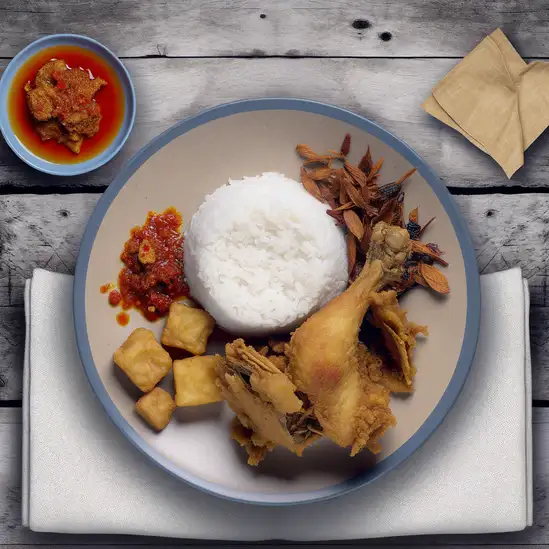
Smashed fried chicken served with sambal (spicy chili paste), rice, and fresh vegetables, known for its bold flavors.
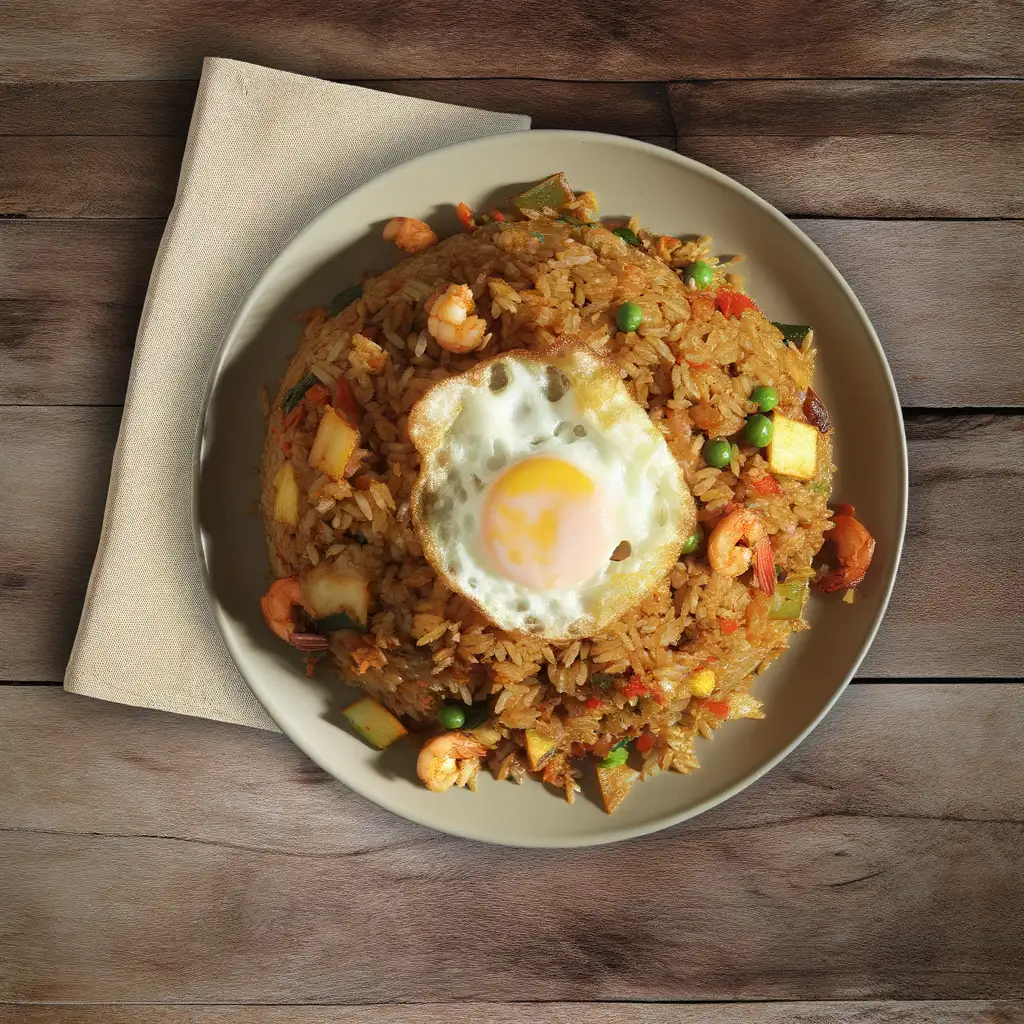
A flavorful fried rice dish typically made with a mix of spices, chicken, shrimp, and vegetables, often served with a fried egg on top.
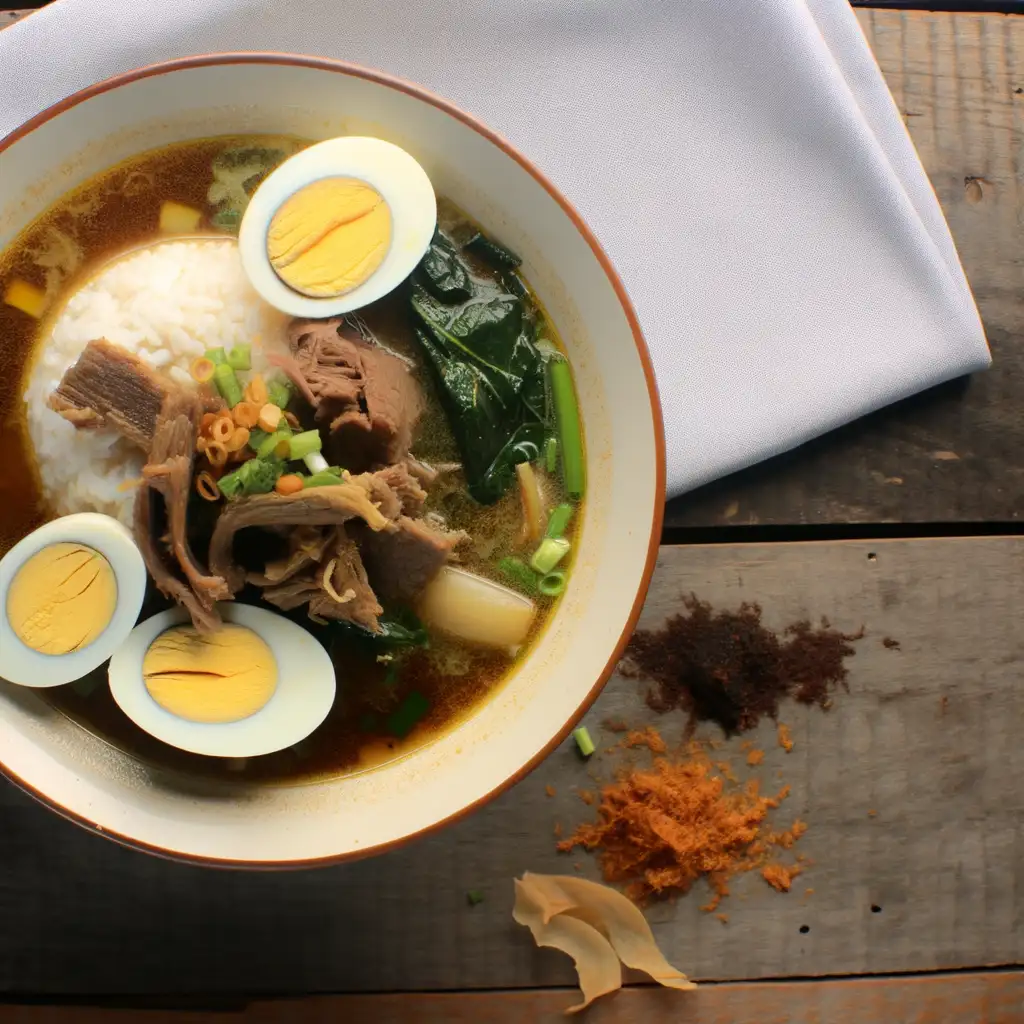
A traditional soup made with beef or chicken, flavored with a rich broth and served with rice, boiled eggs, and various herbs.
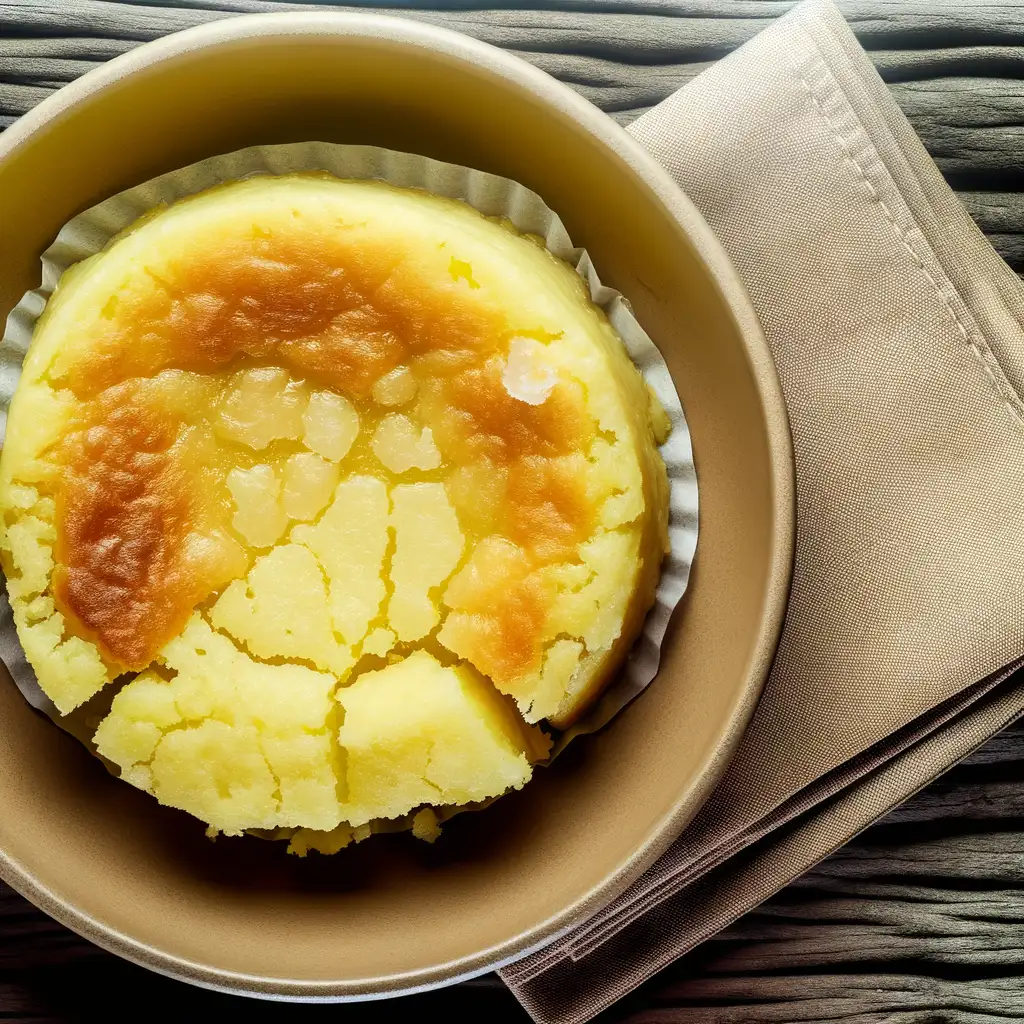
A sweet, spongy cake made from tapioca flour, coconut milk, and sugar, known for its unique texture and aroma.

A type of net-like pancake made from flour, eggs, and coconut milk, often served with curry or as a snack.
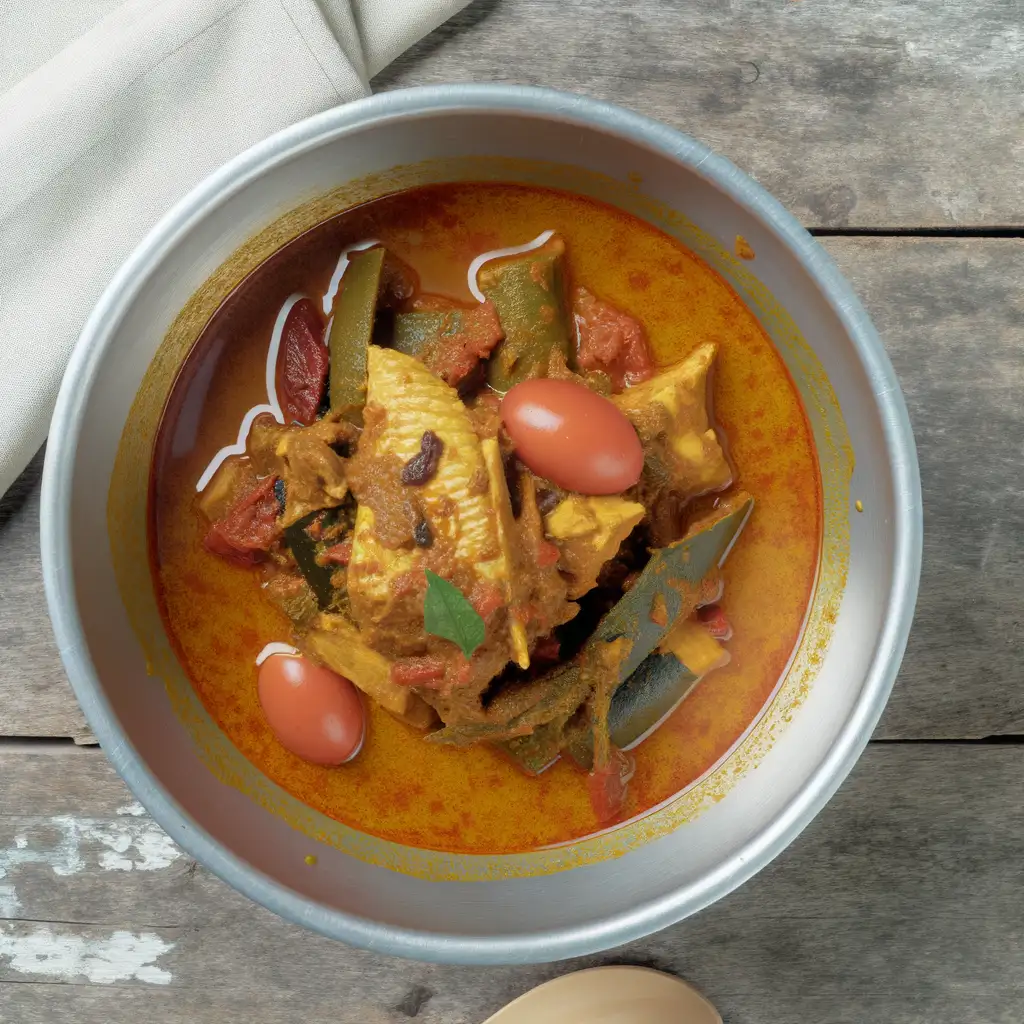
A spicy fish curry made with a variety of spices, coconut milk, and often served with rice.
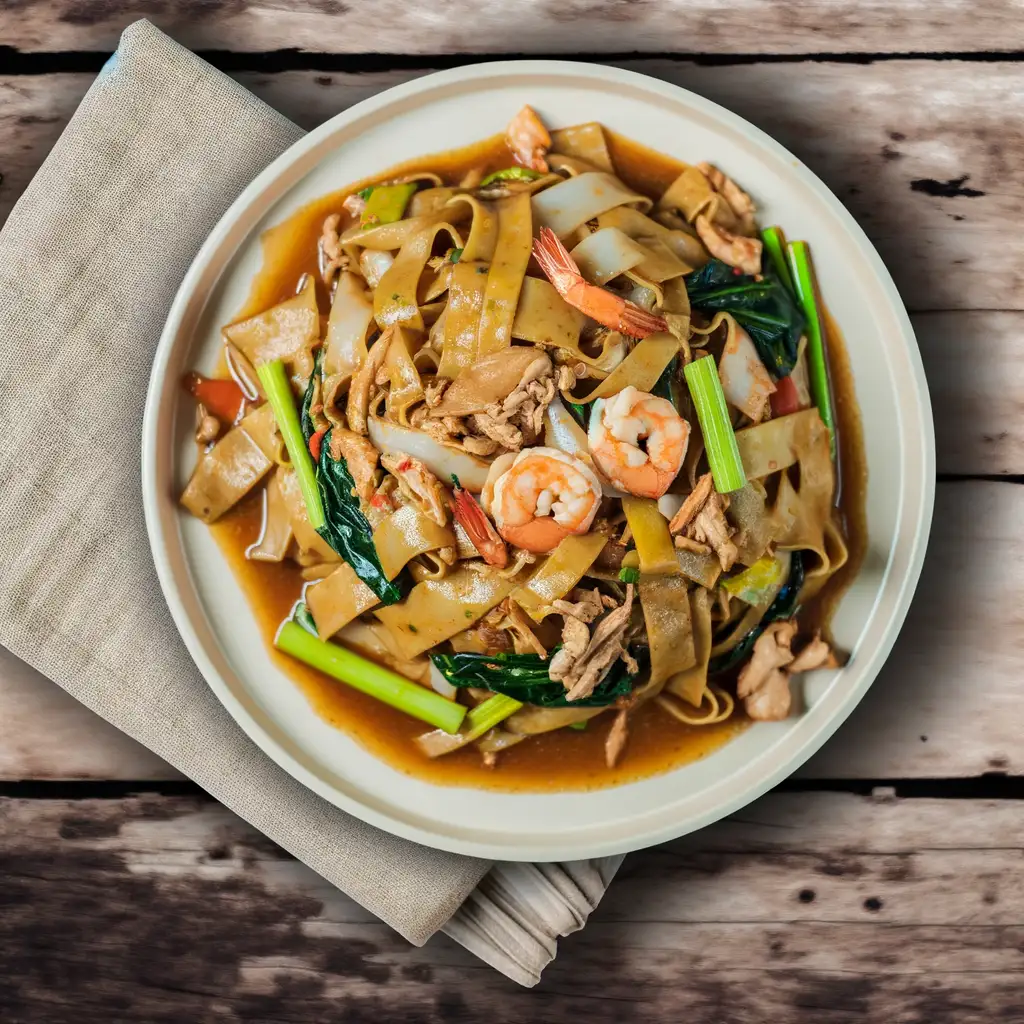
Stir-fried flat rice noodles served with a savory sauce, often accompanied by seafood or meat and vegetables.
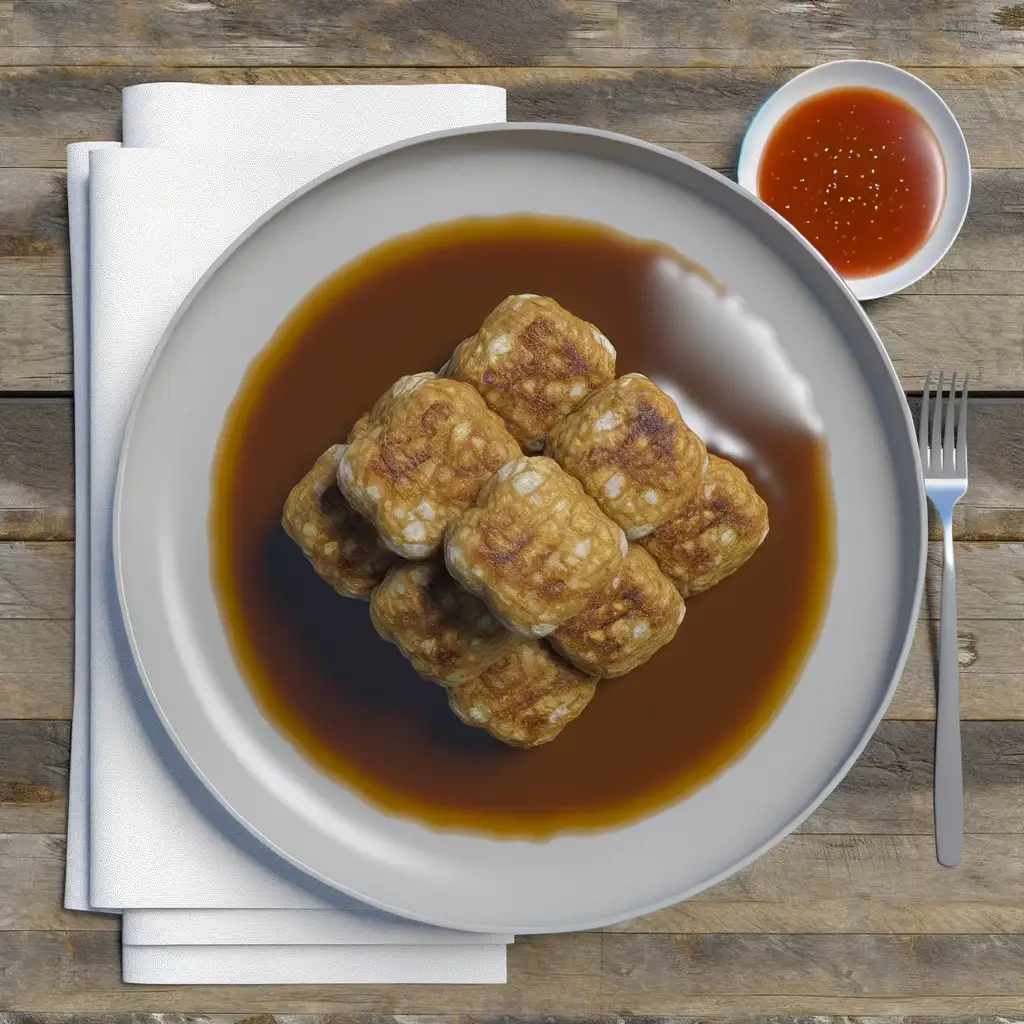
A traditional fish cake made from ground fish and tapioca, typically served with a sweet and sour vinegar sauce.
If you find yourself wandering through Kota Administrasi Jakarta Pusat,you’ll immediately notice the pulse of a city that’s both historic and buzzing with modern energy. It’s a place where colonial-era buildings stand shoulder to shoulder with sleek skyscrapers,creating a fascinating blend of old and new. Walking down the streets,you can almost hear the echoes of history mingling with the chatter of office workers and street vendors. The air carries a mix of aromas—from the rich,spicy scent of street food stalls grilling satay to the faint,comforting smell of freshly brewed kopi from tiny warungs tucked in corners.
What really makes Jakarta Pusat special is its vibrant character. It’s the heart of the city’s administrative and cultural life,so you’ll find a lively mix of people—government officials,artists,students,and families—all weaving their stories into the urban fabric. The bustling markets,like Pasar Baru,invite you to haggle over colorful textiles and local snacks,while nearby museums and galleries offer a quiet retreat into Indonesia’s rich heritage.
There’s a rhythm here that’s both fast-paced and inviting. Whether you’re sipping a sweet es cendol under the shade of a tree in Merdeka Square or catching the golden light reflecting off the National Monument at dusk,Jakarta Pusat feels alive in a way that’s deeply human and endlessly fascinating. It’s a city that invites you to slow down,look around,and soak in the layers of life unfolding all at once.
Bali feels like stepping into a vibrant dream where every corner pulses with life and warmth. From the moment you arrive,there’s this unmistakable energy—part spiritual,part playful—that wraps around you like a soft,tropical breeze. Imagine waking up to the gentle rustle of palm leaves and the distant sound of waves crashing against volcanic black sand beaches. The air carries a mix of frangipani blossoms and salty sea spray,instantly grounding you in the island’s natural beauty.
What really makes Bali special is its rich culture woven into everyday life. You’ll see locals in colorful sarongs offering flowers at temple steps,hear the rhythmic beat of gamelan music drifting through the air,and catch glimpses of intricate wood carvings and vibrant paintings in small artisan shops. The island’s spirituality isn’t just something you observe—it’s something you feel,a quiet presence that invites you to slow down and connect.
And then there’s the food—oh,the food! Freshly grilled satay,fragrant nasi campur bursting with spices,and tropical fruits so sweet they almost taste like candy. Whether you’re dining in a bustling market or a cliffside café overlooking the ocean,every bite feels like a celebration of Bali’s rich flavors and traditions. Honestly,Bali isn’t just a place you visit; it’s a place that stays with you,long after you’ve left.
Imagine stepping into a city where sleek skyscrapers meet lush greenery,and every corner hums with a vibrant energy that’s both modern and deeply rooted in tradition. That’s Singapore for you—a place where the air carries the fragrant mix of blooming orchids and sizzling street food,and the streets buzz with a blend of languages and laughter. Walking through neighborhoods like Chinatown or Little India,you’ll catch the rich aromas of spices mingling with the sweet scent of tropical fruits,inviting you to explore further.
What’s truly captivating about Singapore is how effortlessly it balances the fast-paced pulse of a global hub with pockets of serene beauty. You can be wandering through the futuristic Gardens by the Bay one moment,marveling at the towering Supertrees glowing softly at dusk,and the next,find yourself savoring a bowl of laksa or chili crab at a bustling hawker center,surrounded by locals chatting animatedly. The city’s character shines through its people—warm,diverse,and proud of their heritage,yet always welcoming.
There’s a rhythm here that’s both energizing and comforting. Whether you’re cycling along the waterfront,catching a sunset over Marina Bay Sands,or simply sipping kopi in a cozy café,Singapore invites you to slow down and soak in its unique blend of cultures,flavors,and sights. It’s a city that surprises you with its layers,making every visit feel like a new discovery.
Imagine stepping into a place where the past and present dance effortlessly together—that’s Penang Island for you. The moment you arrive,there’s this warm,inviting buzz in the air,a mix of bustling street markets,the chatter of locals,and the distant hum of the sea. George Town,the island’s heart,feels like an open-air museum sprinkled with vibrant street art,colonial buildings,and temples that tell stories of centuries gone by. Walking through its narrow lanes,you’ll catch the scent of spices,fresh herbs,and sizzling street food that’s impossible to resist.
Penang’s food scene is legendary,and it’s not just about eating—it’s a full-on sensory adventure. Picture biting into a char kway teow,the smoky wok hei flavor hitting your taste buds,or savoring a bowl of asam laksa,where tangy tamarind broth mingles with fresh fish and mint. Every meal feels like a celebration of the island’s rich multicultural heritage,blending Malay,Chinese,Indian,and even Nyonya influences.
Beyond the city,the island’s lush hills and palm-fringed beaches offer a peaceful contrast to the lively streets. You can hike up Penang Hill for panoramic views or unwind by the shore,feeling the gentle sea breeze. What really stays with you,though,is the genuine warmth of the people—friendly smiles,curious conversations,and a laid-back vibe that makes you want to linger just a little longer. Penang isn’t just a place to visit; it’s a place that invites you to slow down,savor life,and soak in its colorful,flavorful soul.
Bangkok is one of those cities that grabs you the moment you step out into its bustling streets. There’s this electric energy in the air—a mix of honking tuk-tuks,sizzling street food stalls,and the chatter of locals weaving through markets. The city feels alive,like it’s constantly moving and breathing,yet somehow it balances this chaos with moments of serene beauty,like the golden spires of temples catching the afternoon sun or quiet canals reflecting the sky.
Walking through Bangkok,you’ll be hit by a whirlwind of scents:fragrant jasmine from flower vendors,the sharp tang of lemongrass and chili from street carts,and the sweet aroma of mango sticky rice tempting you at every corner. The colors are just as vivid—neon signs flicker alongside traditional wooden shophouses,and monks in saffron robes glide past modern skyscrapers. It’s a city where old and new dance together effortlessly.
What really makes Bangkok special is its warmth and openness. The people here have a genuine kindness that shines through,whether you’re bargaining at Chatuchak Market or sharing a laugh over a bowl of spicy boat noodles. The culture is rich and layered,from the intricate rituals at Wat Pho to the lively festivals that light up the streets. Visiting Bangkok feels like stepping into a story that’s still unfolding,full of surprises and moments that stay with you long after you leave.
Imagine stepping into a place where the air hums with the gentle rhythm of waves lapping against sun-warmed shores,and the scent of salty sea mingles with fragrant street food stalls. That’s Phuket for you—a vibrant island that feels alive in every sense. It’s not just the stunning beaches that grab you,but the way the island pulses with a laid-back energy,where colorful markets buzz with chatter and the aroma of grilled seafood fills the air. Walking through the old town,you’ll find charming Sino-Portuguese buildings painted in pastel hues,their shutters creaking softly in the tropical breeze,while tuk-tuks zip by,adding a playful soundtrack to your explorations.
Phuket’s character is a beautiful blend of tradition and liveliness. Temples with golden spires peek out from lush greenery,inviting quiet moments of reflection,while nearby,night markets burst with life—vendors calling out,sizzling woks,and the sweet tang of mango sticky rice tempting your taste buds. The island’s culture is warm and welcoming,with locals who smile easily and share stories over cups of strong Thai coffee or fresh coconut water.
What makes Phuket truly special is how it wraps you in its embrace—whether you’re watching a fiery sunset from a cliffside bar,diving into crystal-clear waters teeming with vibrant marine life,or simply savoring the spicy kick of a freshly made curry. It’s a place that invites you to slow down,soak in the colors,sounds,and flavors,and leave with a heart full of unforgettable moments.
Money changers may use deceptive practices, such as hidden fees or incorrect exchange rates, to cheat tourists out of money.
Vendors may sell counterfeit or low-quality souvenirs at high prices, claiming they are authentic or handmade.
Individuals posing as tour guides may offer their services but provide little value or take tourists to overpriced shops where they earn commissions.
Tourists renting motorbikes may be accused of damaging the vehicle upon return, even if the damage was pre-existing, and forced to pay hefty repair fees.
Some restaurants or food stalls may inflate prices for tourists or add hidden charges to the bill.
Crowded areas like markets and public transportation are hotspots for pickpocketing, where thieves target tourists' wallets and valuables.
Some taxi drivers may refuse to use the meter and charge tourists inflated prices for rides, especially from the airport or popular tourist spots.
Indonesia has very strict laws regarding drugs. The possession, use, or trafficking of illegal drugs is severely punished, with penalties ranging from long prison sentences to the death penalty. Tourists should avoid any involvement with illegal drugs and be aware that even small quantities can lead to severe consequences.
In Medan, Indonesia, smoking is generally allowed in public places, but there are restrictions. Smoking is prohibited in certain areas such as hospitals, schools, public transportation, and government buildings. There are designated smoking areas in some public places like airports and shopping malls. Tourists should look for 'No Smoking' signs and adhere to local regulations to avoid fines.
Vaping is subject to similar regulations as smoking in Medan. It is generally allowed in public places but prohibited in specific areas like hospitals, schools, and public transportation. Some establishments may have designated vaping areas. Tourists should be cautious and look for signs indicating whether vaping is allowed.
What are other people saying about Medan?
Recent Social posts about Medan
There is nothing to show you for now.